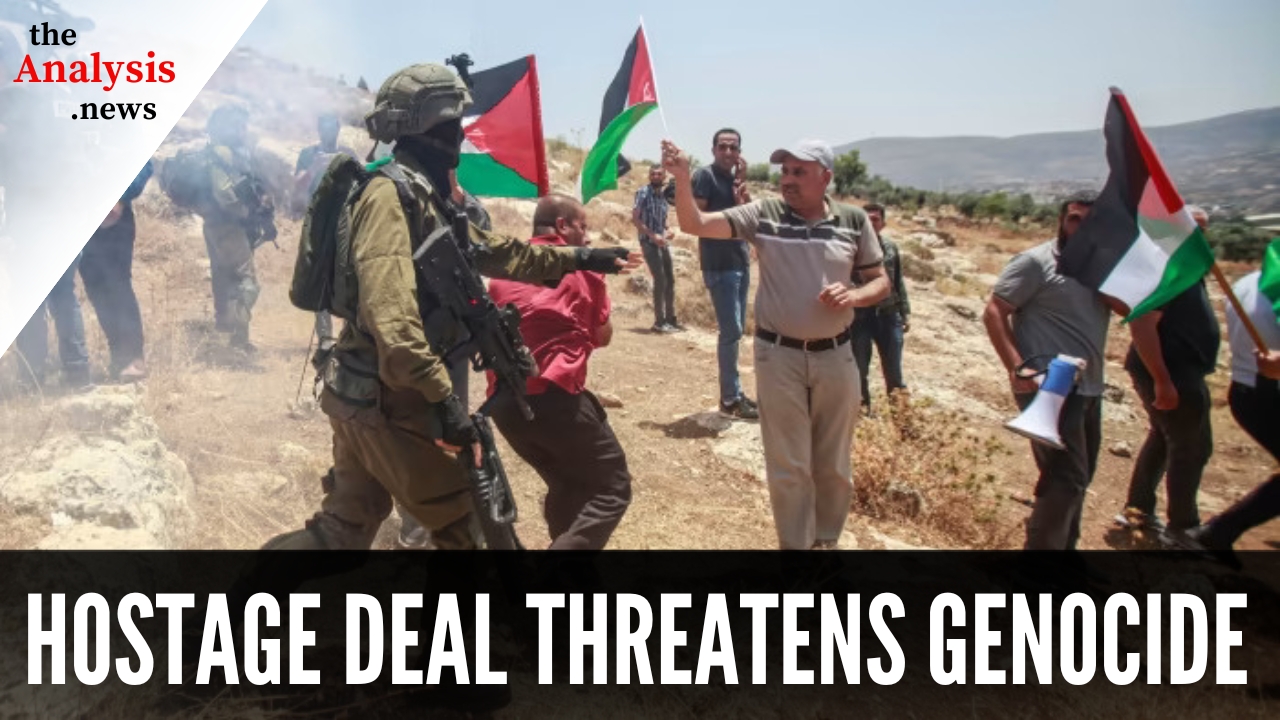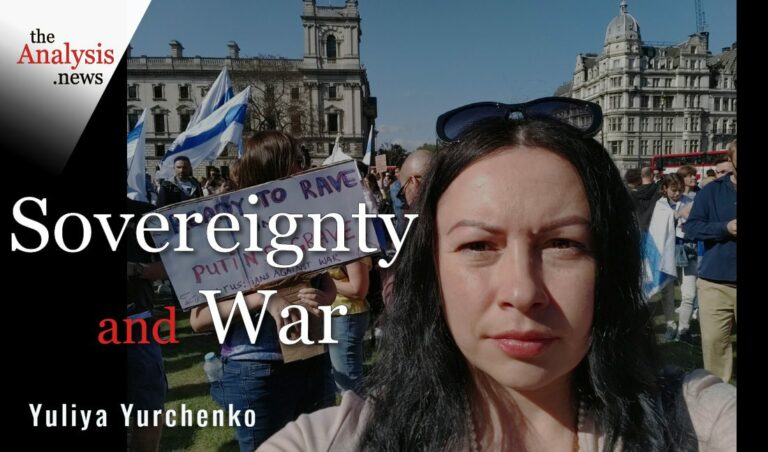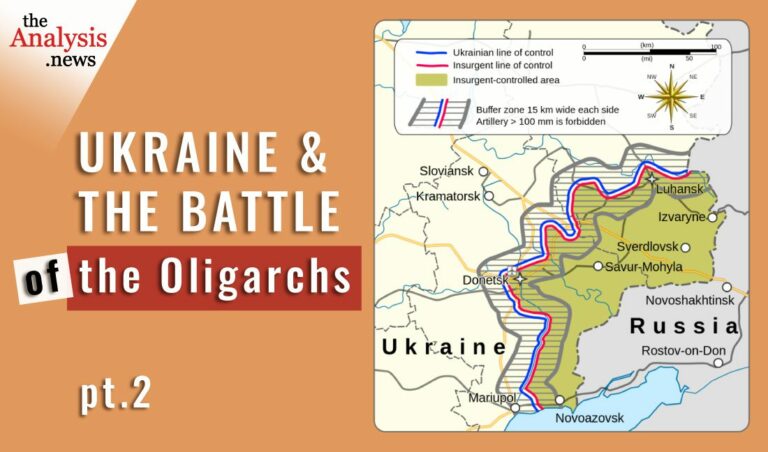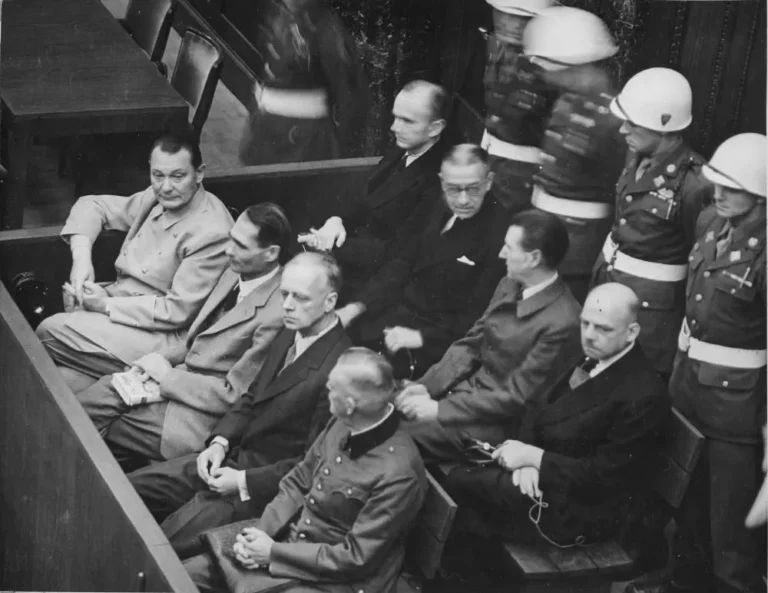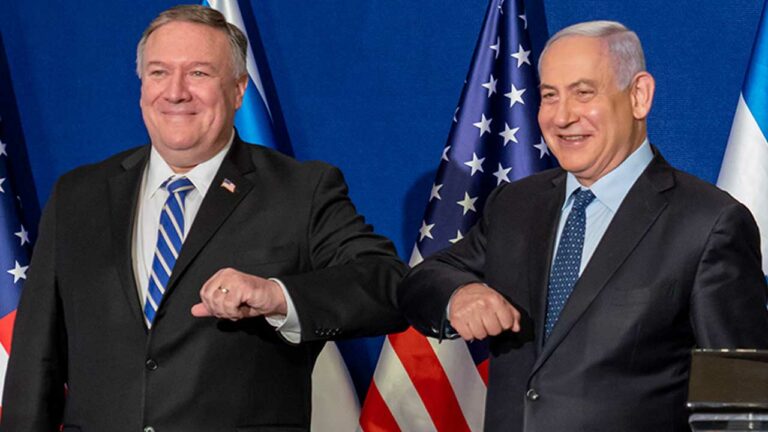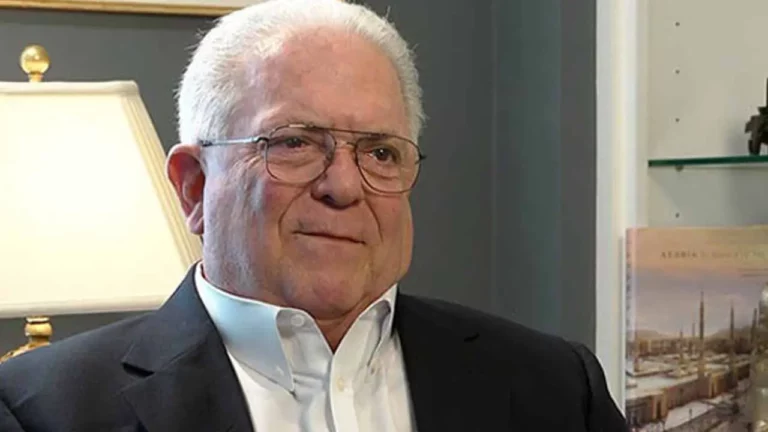Beyond Genocide in Gaza: Settler Violence in the West Bank – Omer Bartov
As Israel continues its campaign of destruction in Gaza, the situation in the West Bank has deteriorated, with the Israeli Defense Forces as well as settlers killing over 500 Palestinians in the West Bank since October 7. Holocaust and genocide studies scholar Dr. Omer Bartov unpacks Israel’s genocidal strategy in the Gaza Strip, and describes the surge of settler violence towards Palestinians. Israel’s far-right National Security Minister Itamar Ben Gvir has not only armed the settlers but has been incorporating them into Israeli forces operating in the West Bank.
Talia Baroncelli
Hi, I’m Talia Baroncelli, and you’re watching theAnalysis.news. Today, I’ll be joined by Israeli genocide and Holocaust studies expert Omer Bartov. We’ll be speaking about Israel’s military operation in the Gaza Strip, as well as illegal settlement activity in the West Bank.
If you like the work that we do and would like to support us, you can go to our website, theAnalysis.news, hit the donate button at the top right corner of the screen, and make sure that you’re on our mailing list; that way, you always get a notification every time a new episode drops. You can like and subscribe to this show on YouTube or on other podcast streaming services such as Spotify and Apple. See you in a bit with Omer Bartov.
I’m very happy to be joined by Professor Omer Bartov. He is a Samuel Pisar Professor of Holocaust and Genocide Studies at Brown University in the United States. He’s the author of numerous books, including Hitler’s Army, Germany’s War and the Holocaust: Disputed Histories, as well as a book published in August of last year called Genocide, the Holocaust and Israel-Palestine, a first-person history in times of crisis. It’s really great to have you here, Professor Bartov.
Omer Bartov
Well, thank you for having me.
Talia Baroncelli
I wanted to ask you about the character of Israel’s military operation in Gaza ever since Hamas’s attacks on October 7. We just saw Israel free four of its hostages in central Gaza, and this operation also resulted in the killing of at least 274 Palestinians.
A few weeks ago, we saw the ICJ rule that Israel must immediately halt its military operations in Rafah. In January, we saw the ICJ rule that Israel is plausibly committing genocide in the Gaza Strip. Of course, that ruling is not definitive, as it would take years to definitively rule that Israel is committing genocide. The ruling was that there is a plausible risk of genocide and that Israel must do all that it can to ensure that it meets its obligations under the Genocide Convention. Given all that, how would you assess the nature and the character of Israel’s operation in Gaza?
Omer Bartov
Well, I’ve been trying to define for myself and others what I think is going on, on the basis, of course, of the information that we are getting, which is not perfect and not entirely reliable. I’ve been trying to be as cautious as I can over time. Already in November, I wrote that my view was that it appeared that the IDF is committing war crimes, potentially crimes against humanity, and could very quickly be moving into what could be defined as genocidal actions.
Now, since then, a lot has happened. Vast numbers of people are being killed. Much more of Gaza has been destroyed. I have to say that since Israel launched its last operation in Rafah, after a period where the IDF was not really sure what it was doing there, I’ve reached a conclusion that we cannot avoid but say that it appears that Israel is engaged in an attempt to destroy Gaza, to remove the population, to intimidate or kill large numbers of people, that it has systematically destroyed universities, schools, places of worship, public buildings, infrastructure, and has displaced the vast majority of the population and then kicked it around from one place to another.
So all of this, it seems to me by now, with this still going on, gives very serious grounds to suspect that it could be called genocide or a genocidal operation. I thought that it could be reversed a couple of months ago. By now, even if an agreement is reached, we don’t see that happening, and I don’t quite see the mechanism right now. I think the nature of the operation up to now appears to indicate that there is a genocidal intent in what Israel is undertaking at the moment in Gaza.
Talia Baroncelli
We should also point out that thousands and thousands of children have been killed by the Israel Defense Forces. At least 15,000, I think the numbers are more now, and possibly 25,000 children since so many of these children are still stuck under the rubble; their bodies are stuck under the rubble.
There have been some attempts by people, talk show hosts such as Joe Scarborough, to question the capacity and accuracy of the numbers by saying that the local health ministry, the Gaza Health Ministry, which is oftentimes referred to as the Hamas-run health ministry since Hamas was, prior to October 7, of course, in charge of all the civilian infrastructure in Gaza, questioning those numbers, saying that since they only identified by name, some of the bodies, that the numbers were somehow inaccurate.
In general, how do you assess these various attempts to discredit the death toll or to somehow spin it as these people were killed as a result of collateral damage? It was unavoidable because the narrative is that Hamas hides behind human shields. Of course, this argument in itself is, it might be at least absurd since there’s still international humanitarian law. Even if Hamas was indeed taking civilians as human shields, for Israel to launch that attack, that would indeed contravene international humanitarian law since these attacks would have to be proportionate. But that argument aside, how do you assess or pick apart this narrative that is deployed in the media that sometimes they think these numbers are maybe manufactured?
Omer Bartov
Look, there are many layers to what you’re asking. There’s a whole set of issues here. One argument that has been made is that Israel has a right to self-defense. Israel was attacked on October 7, and therefore, it had to respond. You could talk about the right of self-defense because, after all, under international law, Gaza is actually occupied. So, self-defense against an area that you’re occupying raises all kinds of other questions because it usually applies to international war. This is not an international war. There is no independent Gaza. But even if you say that Israel has a right to self-defense, and it does by international law, that does not give it the right to conduct a war in which crimes are committed. Nor is it sufficient to say that Hamas perpetrated its own crimes, which it did. Obviously, the ICC is indicating that, the International Criminal Court. But that does not give you the right to carry out crimes. First of all, this argument that it’s self-defense and so forth doesn’t justify crimes. Atrocity does not justify atrocity. That’s the first argument I would make.
Now, both sides, Hamas and Israel, are using propaganda, and you have to take what they say carefully. You can’t believe everything they say. I would note that in the past, curiously, IDF arguments as to how many militants they kill, not civilians, have been shown to be exaggerated. That’s not only the IDF. You can go back to many armies fighting anti-insurgency wars, and usually, the body count that they come up with, the U.S. was a good example of that, is exaggerated.
On the other hand, the death toll claimed by Hamas, historically, has been shown to be quite accurate. Yes, the Health Ministry there is, of course, part of the apparatus of Hamas control in Gaza. But by large, the numbers have been shown to be accurate.
Now, even If there is a dispute over the precise figures, how many we can identify by name, how many are buried under the debris, how many are children, how many are militants, we don’t know for sure; however, these numbers are manipulated, they’re extremely high. And that takes you to the next point, which is how do you actually define war crimes?
So war crimes, first of all, are defined by proportionality. That is, there is under international law, you can say that in war there is collateral damage. That’s just the nature of war, any war, certainly modern war. But the question is whether there is proportionality. That is, if you use a very powerful bomb to kill, say, a number of militants who are under a building, and in that building, there are hundreds of people sheltering, largely because you told them to go there, you said this was safe, and then you dropped the bomb on them saying, “Well, I have to kill those militants. I have a right to kill them. They are fighting me. I’m fighting them.” If you use a one-tonne bomb to do that, then that would probably be called a war crime because it’s a disproportionate use of munitions.
Now, that has been done hundreds of times. Hundreds of these bombs have been used. Beyond that, you have to look at the tactics being used by the Israeli forces. We know that they are because they are to pulverize entire areas before the army moves in with massive use of tanks, bulldozers, artillery, shelling from the sea, and so forth. That will necessarily cause large numbers of civilian losses and can be seen as disproportionate to the military goal. What is your goal, and how are you trying to accomplish it?
Now, that’s just on the question of war crimes. If you can show that there is not only disproportionate but lack of any discrimination, indiscriminate, use of munitions vis-à-vis large civilian populations, then you’re already moving to the area of crimes against humanity. If you can show that there’s an intention to remove that population, to make it go away, or to destroy that population as such, as a particular group, that is that you are saying these people, that group is responsible for whatever you attribute to it, and therefore it has to be eradicated, it has to pay the price, it has to be removed, then you’re moving to the area of genocide. All of this has occurred. So however one crunches the numbers this way or that way, or however one wishes to discredit Hamas, I have no problem at all saying that Hamas is a murderous organization, not only against Jews it’s been murderous also against Palestinians; that does not give you the right to conduct yourself in this manner.
Talia Baroncelli
At this stage, there have been so many massacres. Recently there was the Tent Massacre in which several… I can’t remember the number right now, but maybe it was around 40 or 45 people who were killed in that. Bodies charred, children killed. Then, of course, there was another attack on a UNRWA school in Nuseirat in which Israelis said that Hamas was residing in this school and that they had killed between 20 and 30 Hamas militants. So far, I believe they’ve released the names of 17 militants, and Hamas has countered that claim, saying that some of the people on that list are still alive and that one or two of them were kids. It’s hard to really know between all the propaganda what’s actually going on. The fact of the matter is that 6,000 people were residing in that school. The head of UNRWA, Philippe Lazzarini, said that there was no warning given to these people. He did say earlier that sometimes Israel drops leaflets and says, You need to leave this area because we’re going to bombard it, but even in that case, they didn’t do so. I would assume that would also amount to a war crime.
Omer Bartov
Well, obviously, they don’t do that. If they identify that there are some operatives of Hamas in an area and they want to kill them, then they’re not going to say in advance that they’re coming. That’s the same argument they use now for the hostages. The thing is that even in that case that you’re talking about, they used smaller munitions, but they used them so close to such a high concentration of civilians that it was inevitable that they would kill large numbers of civilians.
In the case of the rescue of the hostages, obviously, there was fighting against them. One assumes that many militants were killed as well. This was happening in an extremely densely populated area. By all accounts, the IDF was using everything it had: vast numbers of munitions from everywhere, from drones, aircrafts, helicopters, artillery, tanks, shell fire from the sea, everything. Yes, and so they killed probably 270 people. One assumes that a number of those are Hamas fighters, but the majority appear to have been civilians. It’s the situation that creates. If one talks about the hostages, everybody who is reasonable in Israel itself knows that the only way to release whichever hostages are still alive, and many of them have died and it appears that the IDF has killed more hostages than Hamas has since they were taken hostage, by most accounts. The only way to release a significant number of them is by agreement. They will not be released this way. Maybe a few at a very high cost to civilians in Gaza. But by large, what the IDF is doing and what the Israeli government is doing is giving up on the hostages, which they really see as an obstacle on the way to accomplishing their goals and saying, “Well, our first priority is to destroy Hamas.” They failed in that miserably.
It’s not just that October 7 was an extraordinary fiasco. It’s the biggest fiasco, certainly since October 6, 1973, which was a fiasco that I personally experienced as a soldier.
Talia Baroncelli
Sorry, we should point out that you also served in the Israeli military. I don’t know if everyone is aware of that who’s listening.
Omer Bartov
Yeah, I was a soldier at the time in the IDF. It was a very bad war, and thousands of Israeli soldiers were killed, and tens of thousands of Syrian and Egyptian soldiers were killed. Not only was the October 7 attack, 50 years and a day later, an extraordinary fiasco, but the operation since eight months of that operation are a complete military fiasco, quite apart from anything else.
The result is that because the war has been handled so badly and the politics around it has been handled so badly, there are, first of all, of course, horrendous civilian losses in Gaza. There’s also a lack of any sense of security in Israel itself. There is an ongoing exchange of fire on the northern border.
Just today, about 50 rockets were fired from Lebanon, and much of the north of Israel has been evacuated. There’s tens of thousands of Israeli citizens who have been displaced, and it’s going nowhere. The reason it’s going nowhere is that the Prime Minister is determined not to find any end to this war because as long as the war continues, he can stay in power. Any agreement that he reaches, he’s afraid that his coalition would fall apart. It’s a coalition made up of extremists who want to empty Gaza and settle it with Jewish settlers. If he loses his coalition, he has a good chance of going to jail because he’s under indictment for severe corruption.
Much of what we see now is not simply that Israel is being bloody-minded in its war against Hamas and against Palestinians more generally, which it is, but also that it has a government that doesn’t even care about its own citizens, not even about its soldiers and its hostages.
Talia Baroncelli
This all plays into some of this back and forth that we heard between Netanyahu’s statements as well as other statements made by Israeli officials such as Itamar Ben-Gvir. These people are saying that there would be no cessation of hostilities, even though Israel had authored a proposal along with the United States, which was presented by U.S. President Joe Biden. This is very similar to the proposal that was okayed by Hamas that was presented by Egypt and Qatar. I believe that’s the proposal that was just voted on and accepted at the UN Security Council. I believe the U.S. voted in favor of this particular–
Omer Bartov
It didn’t just vote in favor of it. This was the U.S. proposal. This was the first time that the U.S. made a proposal for a ceasefire right away. Then, in the stages of the exchange of hostages and prisoners, Israel has thousands of Palestinian prisoners. Many of them have not even had a trial, by the way, they are in administrative detention for years. After that, another set of negotiations, while the ceasefire continues, and after that, a phase in which Gaza would be restored, and there would be a permanent ceasefire. Now there should be, obviously, one more stage because there has to be more than that. There has to be an assurance of real negotiations between the Israeli government and Palestinian leadership. Otherwise, this will continue and resume at one point or another. That is now the American proposal. The Americans are saying this is the Israeli proposal. That’s what the Israelis said they want. But the Israeli government is hedging because it cannot say, this Prime Minister cannot say that he actually accepts a permanent ceasefire, because if he does that, then his own coalition partners are saying that they’re going to blow up the coalition.
Talia Baroncelli
Benny Gantz has also said that he would leave the coalition due to the Israeli military and Israeli government not having a plan for the so-called day after. I believe Gantz leaving doesn’t actually endanger the credibility or integrity of the coalition. The coalition can still continue.
Omer Bartov
Gantz left, of course, a couple of days ago. His party left the coalition. It doesn’t immediately endanger the stability of the coalition because Netanyahu has 64 members of the Knesset out of 120. So he has a majority, and none of them appear to want to leave. They want to stay in power. They’re a bit like the Republicans. They’ll never leave as long as they don’t have to. He does, I think, endanger the credibility of the government because Gantz and [Gadi] Eizenkot, the other member of that Security Cabinet, formed that emergency cabinet that now has no reason to exist anymore. These two guys are former Chiefs of Staff and respected Generals. The people who are left to run the war are mostly people who know nothing about it. The only person who actually served as a soldier in that coalition is Netanyahu himself. They don’t really have that credibility anymore.
What has happened since yesterday is that the coalition voted on a law that continues the ability of Orthodox Jews, ultra-Orthodox, not to serve in the military, that even the Minister of Defense, who is a member of the coalition, refused to vote in favor of. They only had 63 people voting for that. There is a sense that there are people, if you look at it from the Israeli perspective, who are sacrificing their lives. Every day, Israeli troops are killed, whether in the north or in the south. You have tens and tens of thousands of ultra-Orthodox men who do not serve. The sense among soldiers, among reservists, is that there’s no sharing of the burden, and the coalition couldn’t care less about it, that their own government doesn’t care, and they’re actually extending regular army service, and extending reserve service to those who do do it. The burden becomes greater for those who are serving, and nothing is being done to recruit anyone else. Within the fabric of solidarity of Israeli society itself, that whole thing, large numbers of people feel that their government just doesn’t care about them.
Talia Baroncelli
I do want to ask you about the West Bank because I think often we’re focusing on Gaza so much, justifiably so, but it’s easy to forget about what’s going on in the West Bank, which has been absolutely horrible. Since October 7, the UN Office for Coordinating Humanitarian Affairs has reported that there have been over 500 Palestinians killed in the West Bank, and the majority of them have been killed by the IDF, but some of them were also killed by settlers.
Itamar Ben-Gvir has been galvanizing his right-wing ultra-nationalist supporters to move to the West Bank, but also to support the settlers there and to take what he sees as Israel’s land, even though this land is designated as land to form the future Palestinian state, in a sense. These settlements are against international law. They’re completely illegal. We have the settlement activity, the violent settlement activity, and then we also have, as you already mentioned, thousands of Palestinians from Gaza being detained in Israeli jails. Some of them are also from the West Bank, but a lot of them are from Gaza, detained under administrative detention. Some of them are children even, and they’re not granted any judicial redress or rights in those prisons. There have been reports of them being tortured.
There was a New York Times investigation showing that a military camp or a base, if you want to call it that, called Sde-Teiman in Israel, was taking thousands of detainees from Gaza and subjecting them to Gitmo-style torture tactics. I’m just wondering how this all plays into genocidal intent. Would you see these various, I know it’s a very broad question, but would you see these various activities as also playing into not only a project of ethnic cleansing and displacement but also of genocide?
Omer Bartov
Let me say first, on the previous topic, as I was saying, I think that this sense of national solidarity in Israel among Israeli Jews is fraying, both because of the war and also because of what you are describing now. However, one has to concede that the vast majority of the Jewish population of Israel right now, while it has no faith in its government, is in favor of the war and shows no iota of empathy for Palestinians in Gaza, which is quite striking. It’s something quite, I wouldn’t say it’s unprecedented. It’s just the relationship between the destruction and the ongoing lack of empathy is quite striking. Now, that takes you also to the issue of the West Bank and of detentions.
Look, in the West Bank, there is a regime of apartheid. There’s no other way to describe it. That is, you have two populations: you have above three million Palestinians and over half a million Jewish settlers who are living under two separate legal systems. The Jews there live under an Israeli legal system. They have all the rights of a democracy, although Israeli democracy itself is now fraying. The Palestinians have none. They live under military rule, and therefore, they are tried by military courts. Often, if they’re tried, they or their lawyers, if they have any lawyers, are not even shown the charges because they are considered to be secret. They can be kept indefinitely in administrative detention. Children can be arrested, and so forth.
Additionally, what has been happening since October 7 is an ongoing, creeping, ethnic cleansing of the West Bank. While it is true that most of the 500 or so Palestinians who were killed were killed by soldiers, these soldiers are settlers. What Ben-Gvir has done is he has militarized the settlers and put them into uniform. Now they’re soldiers. Many of these soldiers are recruited from within the settlements. You can see in much of the footage that they even cover their faces, which soldiers are not supposed to do so that they will not be identified. So, although they are wearing an IDF uniform, they are covering their faces, and it’s against the instructions of the IDF. That’s part of a general disintegration of discipline in the IDF as well. There are many such cases in Gaza, as you probably saw, a great deal of social media postings by Israeli soldiers, which are illegal, for which they should be charged, and nobody is being charged with abuse, looting, or breaking things, of all kinds of stuff.
Now, if you talk about the system that has been put into place since October 7 in terms of detentions, mostly of people arrested in Gaza, they opened a particular, or they used a camp and converted it to a detention camp in Sde-Teiman. Reports kept coming in of major abuse. Several scores of people died there because of abuse. It’s very difficult to know exactly what’s going on there. There was reporting on it in the Israeli media, and then finally the New York Times. I think because of that, there are now reports, just in the last couple of days, and I think also because of pressure from the Supreme Court in Israel, are filtering those who are detained there into regular jails because Sde-Teiman is obviously not a regular jail.
Now, what does that all mean in terms of genocidal intent? Genocidal intent was expressed, of course, vis-à-vis Gaza right at the beginning. It was raised in the discussions in the ICJ, some of these statements were quoted. You can still hear many of these statements from various people in the Israeli government.
In the West Bank, I think that right now, the intent is to make life as miserable as possible for the population there, which is already living in isolated communities surrounded by checkpoints, barbed wire, bypass roads, and so forth. At the moment, the settlers, with the help of the IDF, are mostly encroaching on more isolated communities of shepherds, of Bedouin, and intimidating them into leaving those areas. There are reports of quite a number of those areas that the population just fled from because they’re afraid for their lives.
The goal appears to be, first of all, to take over area C. After the Oslo Accords, this area was divided into three territories. So, to take an area where there are fewer concentrations of Palestinians and just annex it to Israel. The final goal of such people as [Bezalel] Smotrich and Ben Gvir, they’re not shy of stating it, is to take it all. What will happen with the Palestinian population? As I say, by large, they want to make it more and more difficult for people to live there.
Now, it’s not going to happen in the sense that Palestinians are not going to leave. There are large numbers of Palestinians there. It does mean that the goal itself is ethnic cleansing. There’s no question about it. It’s changing apartheid to ethnic cleansing.
My own view is that it will basically develop into an entire apartheid system unless something is changed, and that the apartheid system will creep from the West Bank into areas where the Palestinians or Israeli citizens have more rights and more protections. And obviously, in the case of Gaza, the goal is by large to empty it if possible. So what you see is something that is partly genocidal intent, it appears in Gaza, ethnic cleansing in the West Bank, and encroaching increasingly on the rights of Palestinians who are citizens of Israel as well, all with a goal of making the whole space from the Jordan to the sea, one state in which there are as few Palestinians as possible, and those who are there will have few and fewer rights.
Talia Baroncelli
Well, it’s really quite shocking to actually hear that settlers are serving in those Israeli security forces because you think that if the settlements themselves are illegal, then people living there joining the police or the security forces would also somehow constitute an illegality or a crime. It’s quite shocking and troubling to hear that.
Professor Bartov, it’s been great speaking to you. I hope we can have you again at some point to speak more specifically about the weaponization of anti-Semitism and the Holocaust to justify some of what’s going on in Gaza as well and also to crack down on protestors and protests, not only in the United States but also across Europe. It would be really great to have you back on the show. Thank you so much for making time and joining us.
Omer Bartov
Sure. Thank you.
Talia Baroncelli
Thank you for watching theAnalysis.news. If you’d like to support us, you can go to our website, theAnalysis.news, and hit the donate button at the top right corner of the screen. See you next time.
Podcast: Play in new window | Download
Omer Bartov is an Israeli-born historian. He is the Samuel Pisar Professor of Holocaust and Genocide Studies at Brown University, where he has taught since 2000. Bartov is a historian of the Holocaust and is considered one of the world’s leading authorities on genocide.
